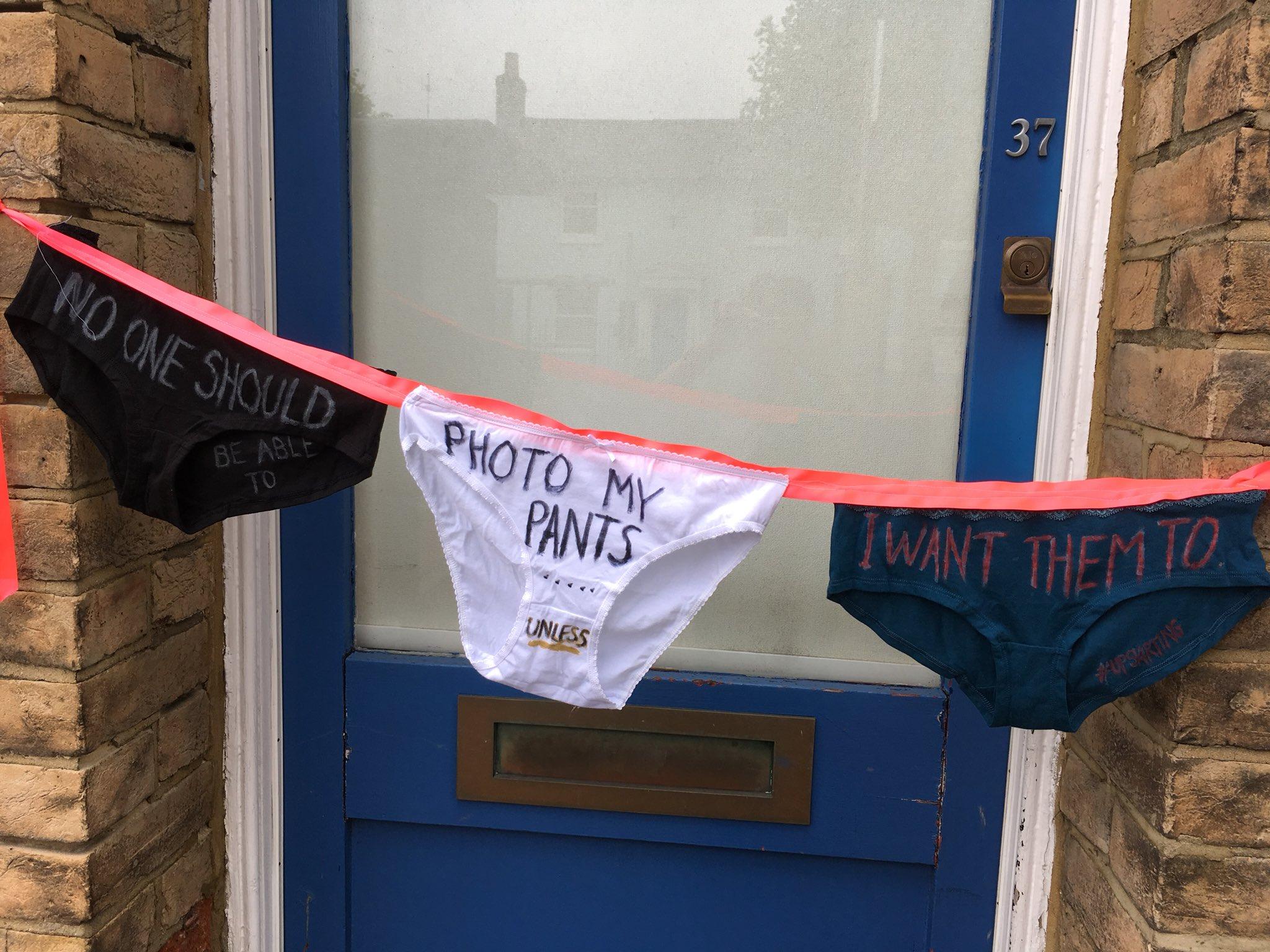Upskirting to become criminal offence after 18-month campaign by victim targeted at festival
Campaigner Gina Martin says decision is 'politics and society at its best'
Your support helps us to tell the story
From reproductive rights to climate change to Big Tech, The Independent is on the ground when the story is developing. Whether it's investigating the financials of Elon Musk's pro-Trump PAC or producing our latest documentary, 'The A Word', which shines a light on the American women fighting for reproductive rights, we know how important it is to parse out the facts from the messaging.
At such a critical moment in US history, we need reporters on the ground. Your donation allows us to keep sending journalists to speak to both sides of the story.
The Independent is trusted by Americans across the entire political spectrum. And unlike many other quality news outlets, we choose not to lock Americans out of our reporting and analysis with paywalls. We believe quality journalism should be available to everyone, paid for by those who can afford it.
Your support makes all the difference.Upskirting is to become a criminal offence punishable by up to two years in prison after new legislation was passed.
Gina Martin, who launched a campaign to criminalise upskirting after being targeted at a festival 18 months ago, said the decision was “politics and society at its best”.
The legislation, which has existed in Scotland since 2010, is now only awaiting the formality of Royal Assent after recieving its third reading in the House of Lords’ Upper Chamber on Tuesday.
Speaking after the bill was approved, Ms Martin said: “Eighteen months ago I was upskirted at a music festival and I decided I wasn’t going to brush it off.
“I was tired of ‘ignoring it’. I felt this was wrong and I was astounded to learn that upskirting wasn’t a sexual offence. I wanted to change this for everyone, because the least we deserve is to be able to wear what we want without non-consensual photos being taken of us.”
Ms Martin, a writer, was waiting to watch The Killers perform at British Summer Time music festival in London’s Hyde Park when a man put his phone between her legs and took pictures of her crotch.
After informing the police, she was shocked to discover upskirting was not a specific offence. A few days later, she published a Facebook post detailing her experience which went viral as other women shared similar experiences.
Soon an online petition to get her case reopened with the police had received 50,000 signatures. Her campaign won cross-party political support from MPs and been backed by celebrities including television presenters Holly Willoughby, Dermot O’Leary and Laura Whitmore.
The government initially rebuffed calls to make it a criminal offence by saying existing offences could be used to prosecute offenders, but after sustained pressure gave their backing to new legislation.
Liberal Democrat Wera Hobhouse introduced the measure in parliament last year using a private member’s bill, saying “there was a gap in the law that needed to be addressed”.

Conservative MP Sir Christopher Chope sparked outrage by single-handedly blocking the legislation, claiming he had blocked it on a point of principle because he does not agree with private member bills being brought before parliament when there is not time for them to be fully debated.
Knickers were subsequently draped outside his constituency office, to which Sir Christopher responded by saying: “I feel a bit sore about being scapegoated over this… The government is abusing parliamentary time for its own ends and, in a democracy, this is not acceptable.”
Figures revealed in February showed girls as young as 10 had been targeted by perpetrators taking illicit photographs under their clothing, commonly using phones or hiding cameras in public places.
Police are not required to record incidents under current rules, leaving the true scale of the practice unknown, and just 15 of 44 forces in England and Wales had allegations of upskirting on file in the past two years.
Of the 78 incidents reported, only 11 resulted in suspects being charged with any crime.
Lega experts have said the previous lack of a dedicated upskirting offence is driving inconsistent approaches by police and prosecutors, while leaving victims unaware of their rights.

Join our commenting forum
Join thought-provoking conversations, follow other Independent readers and see their replies
Comments